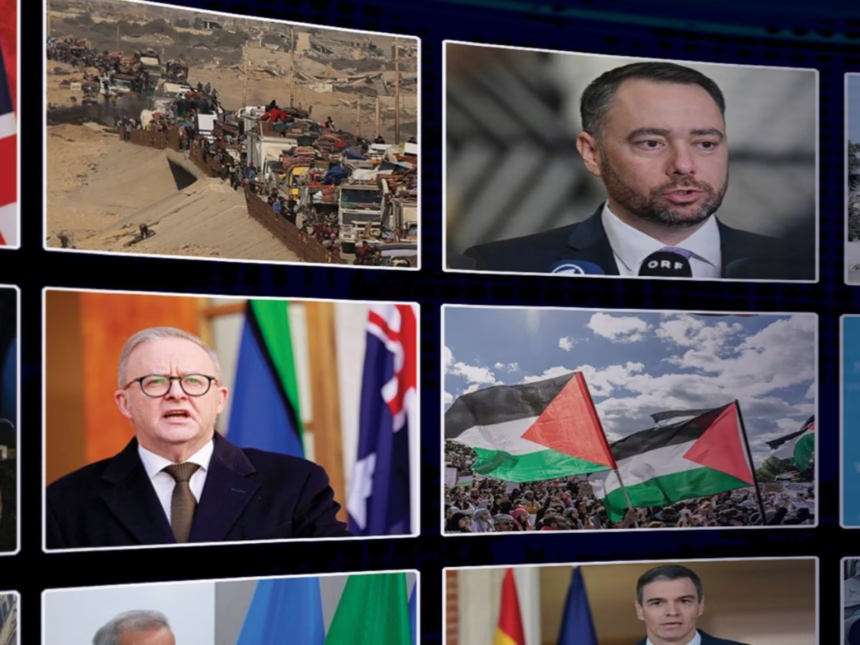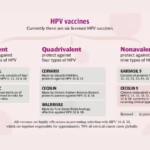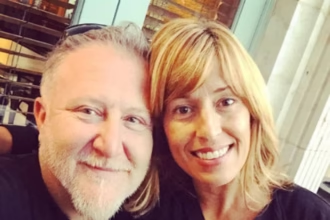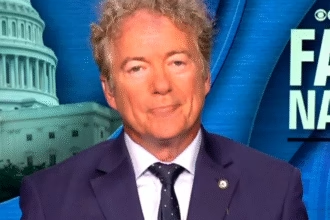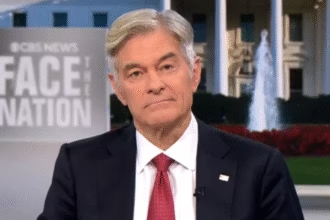PUBLISHED
September 28, 2025
Two years into a brutal conflict that has reduced Gaza to rubble and left thousands dead, the state of Palestine is finally being recognised by a resounding number of countries — including some still supplying Israel with the very weapons used in attacks broadcast to a global audience. The recognition carries symbolic weight, but experts warn it offers little reprieve on the ground.
Israel has made clear it has no intention of retreat. Settlement expansion in the occupied West Bank is accelerating, with open talk of annexation, while Gaza remains under relentless bombardment and blockade. Addressing the UN General Assembly, Benjamin Netanyahu declared that “the job isn’t done,” a blunt signal that diplomatic gestures in New York will not restrain Israel’s military operation.
For Palestinians, international recognition has long been a milestone on the road to statehood. With 157 UN member states — more than 80% of the body — now acknowledging Palestine as sovereign, the tally underscores just how isolated Israel and its closest allies have become. European states, once reluctant, have altered course — compelled by the devastation in Gaza and the collapse of any meaningful peace process.
But recognition, without enforcement, risks ringing hollow. The United States continues to shield Israel from accountability, wielding its veto at the Security Council and supplying billions in military aid. Other governments now backing Palestine have yet to suspend arms transfers to Israel, revealing the disconnect between their words and deeds.
On the ground, the reality is unchanged. Palestinians in Gaza face famine, disease, and mass displacement, while in the West Bank, land seizures and settler violence intensify. More than 65,549 have been killed and 167,518 wounded since October 2023, with thousands more believed trapped beneath the rubble in Gaza, a 141-square-mile enclave squeezed between Egypt and Israel. Satellite imagery reveals the scale of devastation – more than two-thirds of Gaza’s buildings have been damaged or destroyed, entire neighbourhoods flattened. Homes, schools, mosques and hospitals lie in ruins, leaving whole communities erased from the map. Amid the shattered concrete and twisted steel, families are searching for the missing, even as famine tightens its grip and the basic infrastructure of life — water, electricity, shelter — has all but collapsed. Human rights groups caution that without concrete measures — sanctions, embargoes, or international legal action — symbolic recognition alone cannot alter the machinery of death and occupation.
Still, experts believe the wave of recognition marks a turning point in global perception. It formalises what has long been a moral consensus beyond the West — that Palestine’s right to statehood is undeniable, even as its people remain trapped under siege. But recognition alone does not end the killing. “Recognition of a Palestinian state does nothing to end the genocide,” said Kenneth Roth, former executive director of Human Rights Watch.
Roth noted that recognition may help repudiate Israeli claims that the International Criminal Court lacks jurisdiction over atrocities in Gaza, since Palestine is now acknowledged as a state by much of the world. But its deeper significance, he argued, lies in constraining Netanyahu’s options for “resolving” the conflict — either through mass expulsion of Palestinians or the entrenchment of permanent apartheid. Both, Roth said, are incompatible with the Palestinian state that is gaining increasingly widespread recognition.
What took the world so long?
For nearly twenty-four months, Israel’s assault on Gaza has unfolded in full view of the world — atrocities streamed in real time, the devastation impossible to deny. Yet only now are a growing number of Western nations moving to recognize Palestine. Did it really take such catastrophic bloodshed for them to act? And does the long delay amount to tacit complicity in Israel’s campaign? Across the West — and even in parts of the Middle East — governments have shown little capacity to stop what a UN panel led by Navi Pillay has declared an ongoing genocide.
This week, France, Luxembourg, Malta, Monaco, Andorra and Belgium formally recognised a Palestinian state at the 80th session of the UN General Assembly. They join Canada, Australia and Portugal, as well as the United Kingdom, which announced its recognition as well, even as Israel presses ahead with settlement expansion in the occupied West Bank and intensifies its assault on Gaza.
Whether these recognitions will be remembered as the start of meaningful pressure on Israel, or simply another gesture lost amid Gaza’s ruins, will depend on what follows.
Asked why it had taken so long for states to reach this point, Roth pointed to the weakness of Palestinian institutions. “Governments may have been reluctant to recognise a Palestinian state when the Palestinian Authority clearly has at best a marginal capacity to govern in the Israeli-occupied West Bank, East Jerusalem and Gaza,” he said.
But the sheer scale of Israel’s campaign, Roth argued, forced a shift. “As the genocide proceeded, many of these governments wanted to do something to show their outrage,” he explained. “The recent ruling by the International Court of Justice, which declared Israel’s occupation illegal and ordered it to end, may also have been decisive.” Recognition of Palestinian statehood, he added, is its natural corollary.
“Civil society pressure has also mattered. Reports from Israeli human rights groups, a resolution from the International Association of Genocide Scholars, and findings from UN inquiries have all helped to shift political debates within powerful states,” said Professor Timothy Williams of the University of the Bundeswehr Munich, who also serves as Second Vice President of the genocide scholars’ association.
“The recognition of Palestinian statehood is an important political move but largely symbolic. It doesn’t immediately impact the ongoing genocide, because just being recognised as a state doesn’t mean genocide can’t happen,” he added.
“The fact that some European governments are shifting their tone is positive, but it’s late — nearly two years into the war. Tens of thousands have already been killed, much of Gaza’s infrastructure has been destroyed, and nearly the entire population uprooted. So while these governments’ changing stance is valuable, it comes too slowly,” Williams concluded.
Will the genocide end?
The short answer is no. The atrocities carried out by Israeli forces against Palestinians show no sign of abating. Netanyahu’s speech to a near-empty hall at the UN General Assembly left little doubt — he has no intention of halting the campaign. Just days after the UK, France, Canada, Australia, and other countries broke with the United States to recognise an independent Palestinian state, he dismissed a two-state solution as “sheer madness”. “Giving the Palestinians a state one mile from Jerusalem after October 7 is like giving al-Qaeda a state one mile from New York City after September 11,” he said, vowing to “finish the job” in Gaza. Delegations walked out as he called the recognition of a Palestinian state “insane.”
Experts caution that symbolic gestures of recognition cannot halt the ongoing bloodshed. “We should not confuse an important symbolic action with genuine pressure to end Israel’s illegal occupation, let alone the genocide it is committing in Gaza. Additional pressure is urgently needed — for example, by suspending any preferential trade benefits given to Israel,” said Roth.
He noted that, apart from the exceptional case of Trump, most governments have already stopped sending arms or military aid to Israel. “In addition, the Abraham Accord governments such as the United Arab Emirates have threatened to withdraw recognition of Israel if it were to annex the occupied West Bank, but evidently an ongoing genocide is no obstacle to the UAE’s ongoing diplomatic relations with Israel.”
Recognition of genocide is critical, as Williams points out, because under the 1949 UN Genocide Convention, states are obliged to prevent and punish it. “That recognition compels action — which is why governments often hesitate to use the term. By contrast, recognising Palestinian statehood shifts alliances, pressures Israel, and supports activists, but does nothing to stop the immediate violence. Ending the atrocities in Gaza remains the urgent task, while statehood forms part of the broader political picture.” The evidence of genocide, he adds, has long been overwhelming; what lags is the political will to confront it.
Echoing this concern, Claudio Francavilla, Associate Director for EU Advocacy at Human Rights Watch, highlighted the gap between symbolism and action. “It’s mind-boggling that certain governments frame their recognition of Palestine as a bold action to stop Israel’s genocidal campaign,” he said, noting that recognising a state and addressing ongoing atrocities are legally and logically distinct.
On the question of double standards in the Middle East, Francavilla observed that several states maintain robust trade, business, or military ties with Israel, as well as with the US and Europe — relationships they could leverage to pressure both Israel and its closest allies. “Many of these states also have poor human rights records and bear direct or indirect responsibilities for atrocity crimes in places like Yemen or Sudan,” he added, “a reminder that the EU holds no monopoly on double standards and that political will to halt the ongoing atrocities in Gaza remains insufficient.”
Francavilla emphasised that recognition of the Palestinian state does not mitigate Israel’s massive breaches of international law. “Genocides are committed against people, not states,” he said. “All states parties to the 1948 UN Genocide Convention – including all EU states – have a legal obligation to employ all means reasonably available to them to prevent genocide as far as possible. That obligation stands whether they recognise a Palestinian state or not, and it is in no way fulfilled by recognition alone,” he explained.
Is recognition a reward — or a right?
Both Israel and the United States, its primary ally in the ongoing war in Gaza, have dismissed the recognition of a Palestinian state as a reward for Hamas, the group responsible for the October 7 attacks that sparked the conflict.
However, support for recognition is growing within the US as well. Dozens of House Democrats recently signed a letter to President Donald Trump and Secretary of State Marco Rubio, urging the administration to recognise Palestinian statehood. Led by California Democrat Ro Khanna, the letter carries 46 signatures and coincides with the conclusion of the United Nations General Assembly, according to the Guardian.
Even as several countries joined the chorus and called for formal recognition of a Palestinian state and domestic support, the Trump administration remains firmly opposed. Secretary of State Marco Rubio rebuked the move, asserting in a statement, “There is no Palestinian state.”
Roth rejected the notion that recognition constitutes a reward for Hamas, noting that most governments condition their recognition on Hamas’s non-participation, given its military control over Gaza. “Moreover, the Palestinian people deserve free and fair elections, which the corrupt and autocratic Palestinian Authority has not held in more than 15 years,” he added.
Williams explained that recognising Palestinian statehood is a significant political gesture but largely symbolic. It does not immediately halt the ongoing violence in Gaza, where atrocities continue, but signals a shift in political will among some Western actors, breaking from the uncritical solidarity with Israel that dominated the early escalation. Recognition, he noted, is part of a broader strategy that could increase pressure on Israel, though it does not immediately address the humanitarian and political crisis.
Symbolism vs substance
While the recognition of a Palestinian state has little immediate effect on the unfolding atrocities in Gaza, experts stress that it reshapes the legal and political landscape in meaningful ways.
“Israel is pushing back against this recognition precisely because of its symbolic power,” said Williams. “It exerts pressure, so their reaction is predictable. But for ending the violence and genocide in Gaza, other political moves matter far more.”
He pointed to the growing debate over restricting or halting weapons exports to Israel as a crucial development. Recognition of atrocity crimes in Gaza carries legal weight – under international treaties, states supplying arms must ensure they are not enabling atrocity crimes. “With mounting acknowledgement of such crimes, Western governments now face increasing pressure to reconsider their arms transfers.”
“In the first year and a half after October 7, Western states justified supplying weapons to Israel as part of its legitimate self-defense — not only against Hamas but within a hostile regional environment shaped by long-standing enmities. That logic persisted too long,” Williams explained. “Only recently has it begun to shift. We are seeing debates over arms deliveries and even restrictions in Germany — historically a strong supporter of Israel for reasons tied to the Holocaust. This marks a significant change.”
Recognizing Palestinian statehood, by contrast, Williams said, doesn’t have immediate consequences. It shifts alliances, pressures Israel, and strengthens those supporting the Palestinians, but it doesn’t stop the violence now. “The urgent issue is ending the atrocities in Gaza. Statehood is part of the broader picture, but it doesn’t address the immediate crisis.”
Will Trump walk the talk?
On the sidelines of the UN General Assembly, US President Donald Trump met with Arab and Muslim leaders, suggesting that the war in Gaza could end immediately. Action has lagged far behind his rhetoric — the conflict continues unabated, with atrocities mounting even as political narratives shift. Many attacks by Israeli forces have been denied or misrepresented. Take the destruction of Gaza’s Nasser Hospital, one of the final operational hospitals in southern Gaza, for example — Israel claimed it had targeted a Hamas camera, but a Reuters investigation found the camera belonged to a news agency and had been used by its own journalists — a clear contradiction to Israel’s account.
Trump’s framing of the conflict often minimizes Israeli responsibility, portraying the atrocities in Gaza as a continual response to the October 7 attacks by Hamas. Roth stressed that, while Hamas committed blatant war crimes, that does not justify Israel’s targeting of civilians or the ongoing genocide. “Israel could have responded by targeting Hamas fighters,” Roth said, “instead, it has starved and bombed the Palestinian people. Trump tries to ignore that inconvenient reality.”
Echoing skepticism, HRW’s Claudio Francavilla observed that the Trump administration shows little interest in a “just peace,” particularly one that includes accountability. “US backing is central to Israel’s strength and decades-long impunity, and that is unlikely to change,” he said, describing the “Gaza Riviera” plan as morally and legally indefensible. Under Trump, the US has continued to veto UN Security Council resolutions calling for a ceasefire, a practice that mirrors Biden’s approach.
Observing the broader impact of US policy, Williams highlighted the country’s unmatched influence in the region and its unpredictability. He emphasized that long-term stability in Gaza is difficult to achieve without active US engagement, but the outcome depends on how closely Trump backs Israel. Williams noted that European and other states could exert significant pressure on Israel, and while Trump may not actively support these efforts, he may also choose not to obstruct them. “In such a scenario, global pressure could gain traction,” he said. He cautioned, however, that Trump’s foreign policy remains erratic—even in a hypothetical second term—and current stances may shift rapidly.
When asked if the US administration was targeting international institutions, including the UN and ICC, for questioning Israel’s actions, Williams concluded that Trump’s hostility toward the International Criminal Court and the UN predates Gaza. “It reflects a broader, consistent aim to undermine the multilateral system that has governed global relations for decades, with his stance on Israel forming one part of this pattern.”


